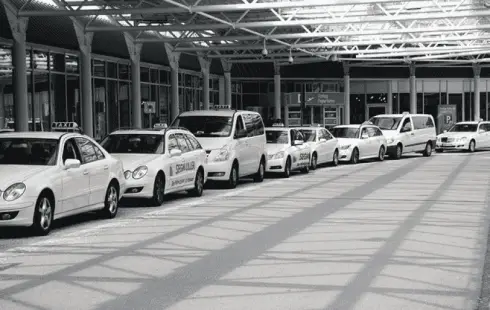
Prioritizing Food Quality Over Carb or Fat Restrictions for Heart Health
Section: Health
 Munich has become the first city in Germany to implement fixed prices for taxi rides. The approval for this new system was given by the Municipal Administration Committee yesterday.
Munich has become the first city in Germany to implement fixed prices for taxi rides. The approval for this new system was given by the Municipal Administration Committee yesterday.
Instead of relying on the traditional taximeter, passengers can now opt for a predetermined fixed fare when booking a taxi. "This provides certainty and enhances the appeal of Munich's taxi companies compared to platforms like Uber," stated Sibylle Stöhr, the Green Party's councilwoman and chairwoman of the city's Taxi Commission. With this change, the days of experiencing exorbitant fares during peak hours, when taxis profit from being stuck in traffic, will be a thing of the past.
Starting from September 1st, fixed prices will be available for all pre-booked taxi rides. Hans-Jürgen Dinter from the dispatching service Isarfunk explained the process: "The caller provides their pickup and destination points, and we will then offer a fixed amount based on the shortest route and a pre-arranged kilometer rate with the taxi companies. Passengers can choose to accept this fixed fare or opt for the traditional taximeter." It is important to note that fixed fares will not be offered for street-hailed taxis or at taxi stands, where the standard taximeter rates will still apply.
The tariff regulation precisely defines the range of fixed prices. They can be set within a corridor that ranges from five percent below the official taxi tariff to twenty percent above it. This measure is aimed at preventing significant price spikes during special events like the Oktoberfest. Moreover, it ensures that the twenty percent increase above the standard tariff will not be exploited seasonally. "Taxi companies want to establish prices that remain stable," asserted expert Dinter. "Customers expect consistency, and fluctuating seasonal prices erode passenger trust. We aim to avoid such price fluctuations."
Dinter pointed out that customer trust has suffered since the removal of the local knowledge test for taxi drivers. Some drivers' lack of familiarity with the city has resulted in longer routes and higher costs for passengers. With the introduction of fixed prices, passengers will now know in advance what they will be paying. "This is fair and transparent, allowing passengers to plan their expenses," said Dinter. He emphasized that taxis are an essential part of public transportation, and the new regulation has been received positively. Moreover, the fixed price system brings them on par with Uber and other ride-hailing services, which already provide upfront fare estimates.
The existing fixed fares for standard routes, which are currently part of the taxi tariff regulation, will remain unchanged and unaffected by this new initiative. Munich's pioneering move towards fixed prices is expected to provide greater convenience and reassurance for passengers, and may serve as a model for other cities considering similar measures.
This article is based on data from Merkur

Section: Health

Section: Arts

Section: Health

Section: Science

Section: News

Section: News

Section: Health Insurance

Section: Health

Section: News

Section: Arts
Health Insurance in Germany is compulsory and sometimes complicated, not to mention expensive. As an expat, you are required to navigate this landscape within weeks of arriving, so check our FAQ on PKV. For our guide on resources and access to agents who can give you a competitive quote, try our PKV Cost comparison tool.
Germany is famous for its medical expertise and extensive number of hospitals and clinics. See this comprehensive directory of hospitals and clinics across the country, complete with links to their websites, addresses, contact info, and specializations/services.
The granddaughter of Claire Zachanassian makes a return to Güllen, the impoverished hometown of her late grandmother, for a performance. Having never fully engaged with her grandmother's past, she is eager to finally discover Güllen. The sound of her last name stirs the entire town into action.



No comments yet. Be the first to comment!